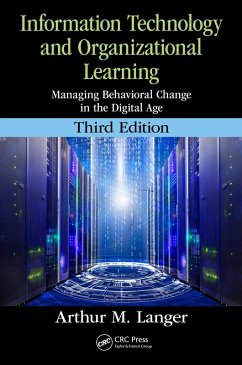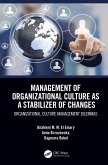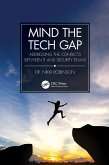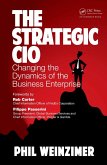Arthur M. Langer
Information Technology and Organizational Learning (eBook, ePUB)
Managing Behavioral Change in the Digital Age
79,95 €
79,95 €
inkl. MwSt.
Sofort per Download lieferbar

40 °P sammeln
79,95 €
Als Download kaufen

79,95 €
inkl. MwSt.
Sofort per Download lieferbar

40 °P sammeln
Jetzt verschenken
Alle Infos zum eBook verschenken
79,95 €
inkl. MwSt.
Sofort per Download lieferbar
Alle Infos zum eBook verschenken

40 °P sammeln
Arthur M. Langer
Information Technology and Organizational Learning (eBook, ePUB)
Managing Behavioral Change in the Digital Age
- Format: ePub
- Merkliste
- Auf die Merkliste
- Bewerten Bewerten
- Teilen
- Produkt teilen
- Produkterinnerung
- Produkterinnerung

Bitte loggen Sie sich zunächst in Ihr Kundenkonto ein oder registrieren Sie sich bei
bücher.de, um das eBook-Abo tolino select nutzen zu können.
Hier können Sie sich einloggen
Hier können Sie sich einloggen
Sie sind bereits eingeloggt. Klicken Sie auf 2. tolino select Abo, um fortzufahren.

Bitte loggen Sie sich zunächst in Ihr Kundenkonto ein oder registrieren Sie sich bei bücher.de, um das eBook-Abo tolino select nutzen zu können.
Focusing on the critical role IT plays in organizational development, the book shows how to employ action learning to improve the competitiveness of an organization.
- Geräte: eReader
- mit Kopierschutz
- eBook Hilfe
- Größe: 4.03MB
Andere Kunden interessierten sich auch für
![Information Technology and Organizational Learning (eBook, PDF) Information Technology and Organizational Learning (eBook, PDF)]() Arthur M. LangerInformation Technology and Organizational Learning (eBook, PDF)50,95 €
Arthur M. LangerInformation Technology and Organizational Learning (eBook, PDF)50,95 €![Management of Organizational Culture as a Stabilizer of Changes (eBook, ePUB) Management of Organizational Culture as a Stabilizer of Changes (eBook, ePUB)]() Ibrahiem M. M. El EmaryManagement of Organizational Culture as a Stabilizer of Changes (eBook, ePUB)47,95 €
Ibrahiem M. M. El EmaryManagement of Organizational Culture as a Stabilizer of Changes (eBook, ePUB)47,95 €![Mind the Tech Gap (eBook, ePUB) Mind the Tech Gap (eBook, ePUB)]() Nikki RobinsonMind the Tech Gap (eBook, ePUB)36,95 €
Nikki RobinsonMind the Tech Gap (eBook, ePUB)36,95 €![Information Technology and Organizational Learning (eBook, ePUB) Information Technology and Organizational Learning (eBook, ePUB)]() Arthur M. LangerInformation Technology and Organizational Learning (eBook, ePUB)50,95 €
Arthur M. LangerInformation Technology and Organizational Learning (eBook, ePUB)50,95 €![Implementing Project and Program Benefit Management (eBook, ePUB) Implementing Project and Program Benefit Management (eBook, ePUB)]() Kenn DolanImplementing Project and Program Benefit Management (eBook, ePUB)46,95 €
Kenn DolanImplementing Project and Program Benefit Management (eBook, ePUB)46,95 €![The Strategic CIO (eBook, ePUB) The Strategic CIO (eBook, ePUB)]() Philip WeinzimerThe Strategic CIO (eBook, ePUB)131,95 €
Philip WeinzimerThe Strategic CIO (eBook, ePUB)131,95 €![The Security Leader's Communication Playbook (eBook, ePUB) The Security Leader's Communication Playbook (eBook, ePUB)]() Jeffrey W. BrownThe Security Leader's Communication Playbook (eBook, ePUB)48,95 €
Jeffrey W. BrownThe Security Leader's Communication Playbook (eBook, ePUB)48,95 €-
-
-
Focusing on the critical role IT plays in organizational development, the book shows how to employ action learning to improve the competitiveness of an organization.
Dieser Download kann aus rechtlichen Gründen nur mit Rechnungsadresse in A, B, BG, CY, CZ, D, DK, EW, E, FIN, F, GR, HR, H, IRL, I, LT, L, LR, M, NL, PL, P, R, S, SLO, SK ausgeliefert werden.
Produktdetails
- Produktdetails
- Verlag: Taylor & Francis eBooks
- Seitenzahl: 429
- Erscheinungstermin: 17. Oktober 2017
- Englisch
- ISBN-13: 9781351387583
- Artikelnr.: 49990537
- Verlag: Taylor & Francis eBooks
- Seitenzahl: 429
- Erscheinungstermin: 17. Oktober 2017
- Englisch
- ISBN-13: 9781351387583
- Artikelnr.: 49990537
- Herstellerkennzeichnung Die Herstellerinformationen sind derzeit nicht verfügbar.
Arthur M. Langer has more than 25 years of experience in managing the strategic development, support, and marketing of software and computer systems. His professional expertise encompasses IT strategy, outsourcing, operations management, feasibility analysis and techniques for developing and marketing systems, management of IT staff, IT cost/benefit analysis, systems selection/migration, Year 2000 implementation, computer downsizing, and software re-engineering of enterprise systems to Client/Server using Object Oriented Methods. Select clients include Prudential Insurance, Corcoran Group, Citibank, Purina Mills, WNET/Thirteen, System Software Associates, Global Turnkey Systems, TIAA/Cref, France Telecom, and Buelli and Rasero (Italy's largest insurance agents). In addition to corporate consulting, Dr. Langer presents seminars throughout the world on analysis, design, and software management.
Dr. Langer is Chair of Faculty and Curricular Development in the Information Technology Programs of Columbia University's School of Continuing Education and teaches courses in the MBA program of the Graduate School of Business at Columbia. A specialist in issues of distance education, mentoring, and workplace learning, he has more than 15 years of experience in adult higher education. At Columbia, he is responsible for developing overall curricular direction, as well as individual courses, for graduate-level adult education program. He is also responsible for program administration, including faculty hiring and student recruitment.
As a researcher, Dr. Langer has authored various papers on information systems design and management. His current research focuses on the mentoring of adult learners and the design of technology-based curricula for corporations and universities. Dr. Langer is also the author of The Art of Analysis, used in the United States and abroad by universities and professionals in the industry. Dr. Langer holds a BS in computer science, an MBA in accounting/finance, and a Doctorate of Education from Columbia University.
Dr. Langer is Chair of Faculty and Curricular Development in the Information Technology Programs of Columbia University's School of Continuing Education and teaches courses in the MBA program of the Graduate School of Business at Columbia. A specialist in issues of distance education, mentoring, and workplace learning, he has more than 15 years of experience in adult higher education. At Columbia, he is responsible for developing overall curricular direction, as well as individual courses, for graduate-level adult education program. He is also responsible for program administration, including faculty hiring and student recruitment.
As a researcher, Dr. Langer has authored various papers on information systems design and management. His current research focuses on the mentoring of adult learners and the design of technology-based curricula for corporations and universities. Dr. Langer is also the author of The Art of Analysis, used in the United States and abroad by universities and professionals in the industry. Dr. Langer holds a BS in computer science, an MBA in accounting/finance, and a Doctorate of Education from Columbia University.
1. The "Ravell" Corporation
2. The IT dilemma
3. Technology as a variable and responsive organizational dynamism
4. Organizational learning theories and technology
5. Managing organizational learning and technology
6. Digital technology platforms and the future of work
7. Virtual teams and outsourcing
8. Organizational learning
IT
and technology disruptions
9. Forming a cyber security culture
10. Digital transformation and changes in consumer behavior
11. Integrating multiple generations of employees to accelerate competitive advantage in the digital age
12. Toward best practices
13. Conclusion
2. The IT dilemma
3. Technology as a variable and responsive organizational dynamism
4. Organizational learning theories and technology
5. Managing organizational learning and technology
6. Digital technology platforms and the future of work
7. Virtual teams and outsourcing
8. Organizational learning
IT
and technology disruptions
9. Forming a cyber security culture
10. Digital transformation and changes in consumer behavior
11. Integrating multiple generations of employees to accelerate competitive advantage in the digital age
12. Toward best practices
13. Conclusion
1. The "Ravell" Corporation
2. The IT dilemma
3. Technology as a variable and responsive organizational dynamism
4. Organizational learning theories and technology
5. Managing organizational learning and technology
6. Digital technology platforms and the future of work
7. Virtual teams and outsourcing
8. Organizational learning
IT
and technology disruptions
9. Forming a cyber security culture
10. Digital transformation and changes in consumer behavior
11. Integrating multiple generations of employees to accelerate competitive advantage in the digital age
12. Toward best practices
13. Conclusion
2. The IT dilemma
3. Technology as a variable and responsive organizational dynamism
4. Organizational learning theories and technology
5. Managing organizational learning and technology
6. Digital technology platforms and the future of work
7. Virtual teams and outsourcing
8. Organizational learning
IT
and technology disruptions
9. Forming a cyber security culture
10. Digital transformation and changes in consumer behavior
11. Integrating multiple generations of employees to accelerate competitive advantage in the digital age
12. Toward best practices
13. Conclusion







